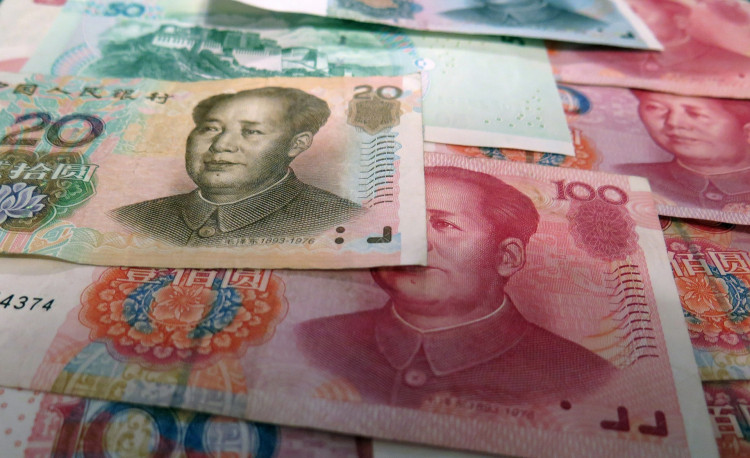Chinese companies are defaulting on their debt in record numbers and have become the biggest threat to China's and the world economy's continued growth, said both Moody's Analytics and Fitch Ratings, Inc. in separate warnings.
For Moody's chief economist Mark Zandi, Chinese corporate debt is now the "biggest threat" to the global economy. Zandi described this massive debt and the risks associated with it as a "very significant fault line."
He also said corporate debt is a "fault line in the financial system and the broader economy" but warned indebted Chinese companies are the larger risk to growth.
"I would point to Chinese corporate debt as the biggest threat," he said, emphasizing its very rapid growth in China.
Moody's said the unrelenting jump in corporate date was being fueled by a tightening of credit as a result of the government's deleveraging campaign. China has been trying to reduce its reliance on debt by tightening regulations to speed up deleveraging or the process of reducing debt. These efforts, however, have been paused because of the damage being inflicted by the trade war. It's been replaced by government stimulus packages that afford debt-laden firms room to get their houses in order.
Fitch Ratings last week also warned about the dangers of China's huge corporate debt mountain. It pointed out private companies in China are defaulting on their debts at a record pace this year. It said China's massive surge in bond defaults topped $17 billion since November and will most certainly exceed the 2018 default record amid weak economic growth.
Fitch said a record high 4.9% of China's private issuers defaulted on onshore bond payments (or yuan-denominated bonds) in the first 11 months of 2019, a massive jump from 0.6% in 2014. It said corporate bond defaults in China will hit a record high in 2020 as Beijing refuses to come to the rescue of struggling and debt-laden companies. The number of new onshore issuers that fail to repay debt could rise to up to 60 in 2020 from 51 in the first 11 months this year. Fitch expects the default rate to jump to 1.3 percent.
Moody's identified Trump's trade war against China as a key factor aggravating the debt crisis plaguing private Chinese firms. Zandi said many Chinese companies are struggling to cope with a slowdown in growth stemming from Trump's trade war and other factors.
In a report this October, Moody's said the debt crisis was being stoked by a tightening of credit as a result of the government's deleveraging efforts. Worse, local governments continue to show a "greater tolerance" towards defaults.
"Around 80% of the onshore defaults by both issuer count and principal amount were from the private sector, being more vulnerable than state-owned enterprises (SOEs) to external funding market volatilities -- and therefore face greater liquidity and/or refinancing risk under tight credit conditions," said Moody's.






